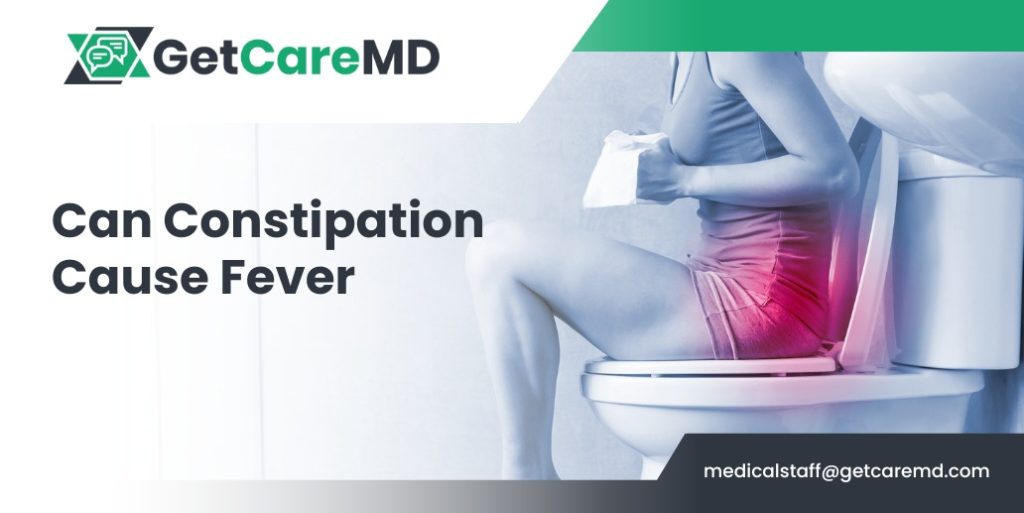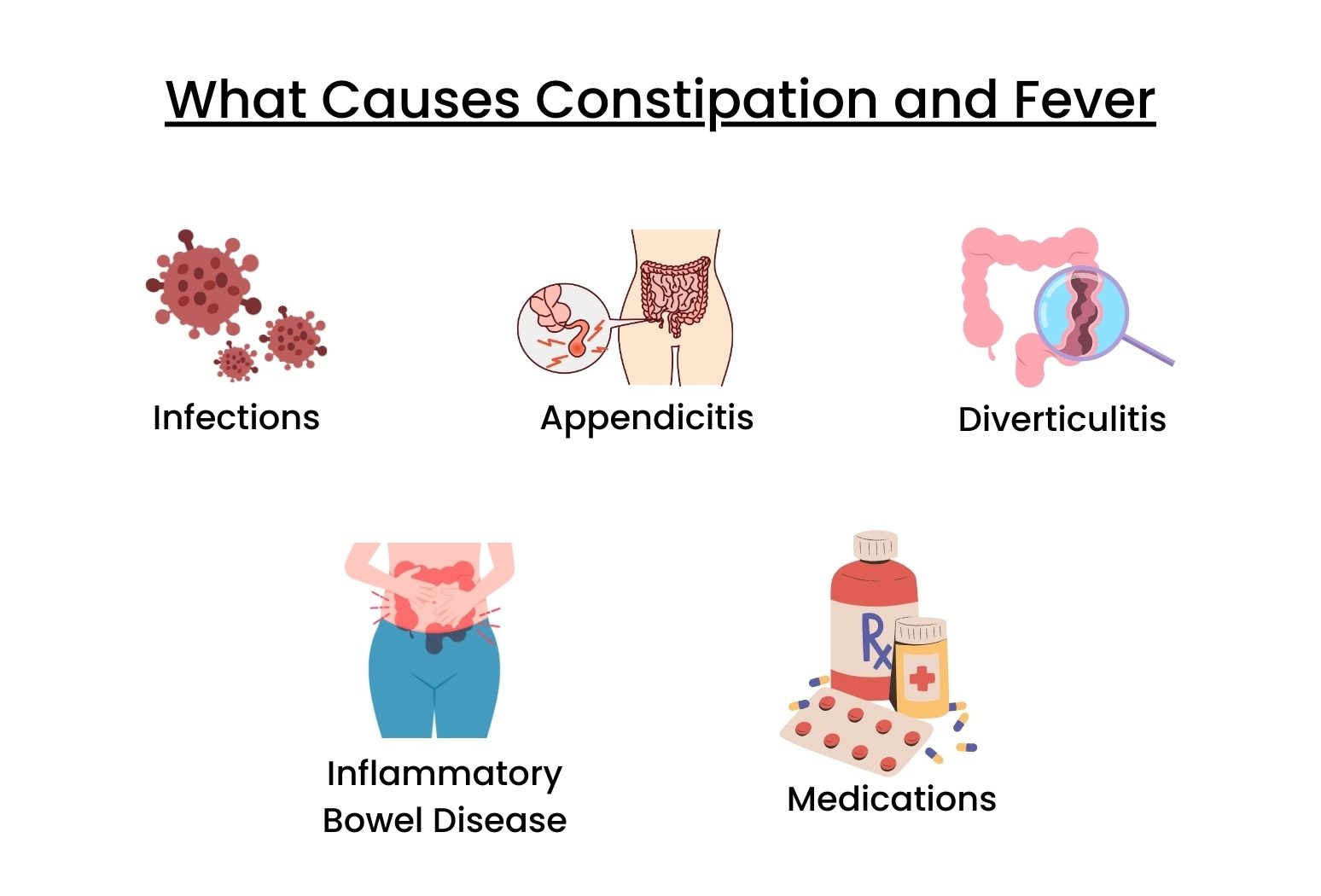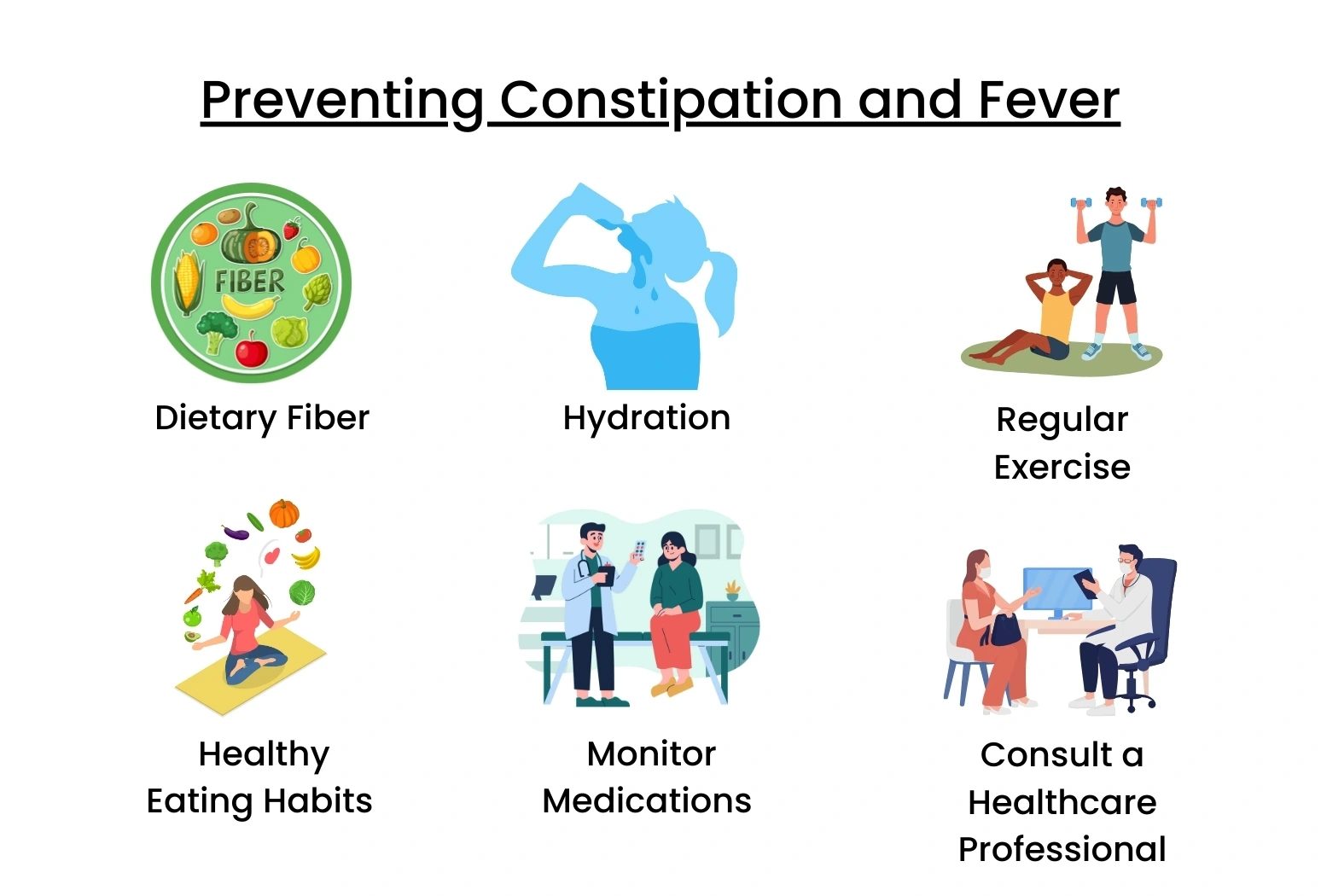Constipation is a common digestive issue that affects many people worldwide. It can cause discomfort, abdominal pain, and bloating. But can constipation cause fever?
Understanding this connection is crucial for addressing potential health concerns. While constipation itself isn’t typically known to cause a fever, it can lead to complications that might result in an elevated body temperature.
Recognizing the symptoms and understanding the severity of this condition is essential for maintaining good health and well-being.
Could Constipation Cause Fever
While constipation itself is not a direct cause of fever, there are circumstances where constipation leads to fever indirectly. Severe or prolonged constipation can result in complications such as bowel obstruction or infection, which can trigger an inflammatory response in the body, leading to an elevated temperature.
Additionally, the buildup of waste in the intestines can create an environment where harmful bacteria thrive, potentially causing infections that manifest as fever.
Understanding these connections can help in identifying the root causes and seeking appropriate medical intervention when necessary.
What Causes Constipation and Fever?
Understanding the causes of both constipation and fever can help in identifying the underlying issues and seeking appropriate treatment. Here are some common causes:
Infections: Infections in the digestive tract, such as bacterial, viral, or parasitic infections, can lead to both constipation and fever. These infections cause inflammation and disrupt normal bowel function, resulting in constipation and an elevated body temperature as the body fights off the infection.
Appendicitis: Appendicitis is the inflammation of the appendix, often leading to severe abdominal pain, constipation, and fever. If left untreated, it can cause the appendix to rupture, leading to a serious infection and further complications.
Diverticulitis: Diverticulitis occurs when small pouches in the colon, known as diverticula, become inflamed or infected. This condition can cause constipation, abdominal pain, and fever as the body responds to the infection and inflammation in the digestive tract.
Inflammatory Bowel Disease (IBD): IBD, including Crohn’s disease and ulcerative colitis, involves chronic inflammation of the digestive tract. This inflammation can disrupt normal bowel movements, leading to constipation and episodes of fever during flare-ups.
Medications: Certain medications, such as opioids, anticholinergics, and some antidepressants, can cause constipation as a side effect. In some cases, these medications can also affect the body’s immune response, potentially leading to fever if an infection or other complication arises.
Can Constipation Cause Fever in 1-Year-Olds?
Parents often worry about their little ones’ health, especially when symptoms like constipation and fever appear. But can constipation cause fever in babies? While constipation alone is unlikely to cause a fever in a 1-year-old, it can lead to complications that might result in an elevated temperature.
For example, severe constipation can cause discomfort and potential infections in the digestive tract, which may, in turn, cause a fever. Additionally, if a baby is straining too hard during bowel movements, it could lead to small tears or other issues that might increase the risk of infection and fever.
Therefore, it’s important to monitor a baby’s symptoms closely and consult a pediatrician if constipation and fever occur simultaneously.
Preventing Constipation and Fever
Preventing constipation and fever involves a combination of healthy dietary habits, adequate hydration, and regular physical activity. Here are some strategies to help maintain a healthy digestive system and reduce the risk of complications:
- Dietary Fiber: Ensure a diet rich in fiber, including fruits, vegetables, whole grains, and legumes. Fiber helps to keep bowel movements regular and prevents constipation.
- Hydration: Drinking plenty of water throughout the day is essential for softening stool and promoting regular bowel movements. Adequate hydration also supports overall body functions, including immune response.
- Regular Exercise: Physical activity stimulates intestinal contractions, aiding in the movement of stool through the digestive tract. Aim for at least 30 minutes of moderate exercise most days of the week.
- Healthy Eating Habits: Encourage regular meal times and avoid excessive intake of processed foods, which can lead to constipation. Eating smaller, more frequent meals can also help maintain digestive health.
- Monitor Medications: Be aware of medications that may cause constipation as a side effect. Discuss with your healthcare provider if you experience constipation while taking any medication, and ask about possible alternatives or solutions.
- Consult a Healthcare Professional: If you experience persistent constipation or if constipation is accompanied by fever, consult a healthcare professional for a proper diagnosis and treatment plan. Early intervention can prevent complications and ensure better health outcomes.
By adopting these preventive measures, you can maintain a healthy digestive system and reduce the risk of constipation and related complications that could potentially lead to fever.
When to Go to Urgent Care?
Knowing when to seek urgent medical care for constipation and fever is crucial to prevent serious complications. If you or your child experience severe abdominal pain, vomiting, or a persistent fever alongside constipation, it’s essential to visit urgent care immediately.
These symptoms could indicate a more serious underlying condition, such as a bowel obstruction, appendicitis, or an infection that requires prompt medical attention. Additionally, if there is blood in the stool, significant bloating, or if constipation and fever persist despite home remedies and over-the-counter treatments, it’s important to seek professional evaluation.
Early intervention can ensure appropriate treatment and prevent the condition from worsening.
Closing Note:
While constipation alone may not directly cause a fever, complications arising from severe or prolonged constipation can lead to an elevated body temperature. Recognizing the symptoms, maintaining preventive measures, and knowing when to seek urgent care are vital steps in managing your health. By addressing these concerns proactively, you can ensure better overall well-being and prevent complications. So, can constipation cause fever? Indirectly, yes, and staying informed is key to maintaining optimal health.
FAQs
Question 1: Can constipation cause fever in a 2-year-old?
Ans: While constipation itself is unlikely to cause a fever in a 2-year-old, severe or prolonged constipation can lead to complications that may result in an elevated temperature. Infections or other related issues stemming from constipation might cause fever. Always consult a pediatrician if your child experiences both constipation and fever simultaneously.
Question 2: Can constipation cause fever in a 4-year-old?
Ans: Similar to younger children, constipation alone is not a direct cause of fever in a 4-year-old. However, complications such as bowel obstruction or infections due to severe constipation can lead to a fever. If your 4-year-old has both constipation and fever, it’s important to seek medical advice to identify and treat any underlying issues.
Question 3: Can constipation cause flu-like symptoms?
Ans: Constipation can sometimes be accompanied by symptoms that resemble flu, such as abdominal discomfort, fatigue, and malaise. However, it typically does not cause actual flu-like symptoms such as fever, body aches, and respiratory issues. If you experience flu-like symptoms along with constipation, it’s crucial to consult a healthcare provider to rule out other potential causes.



